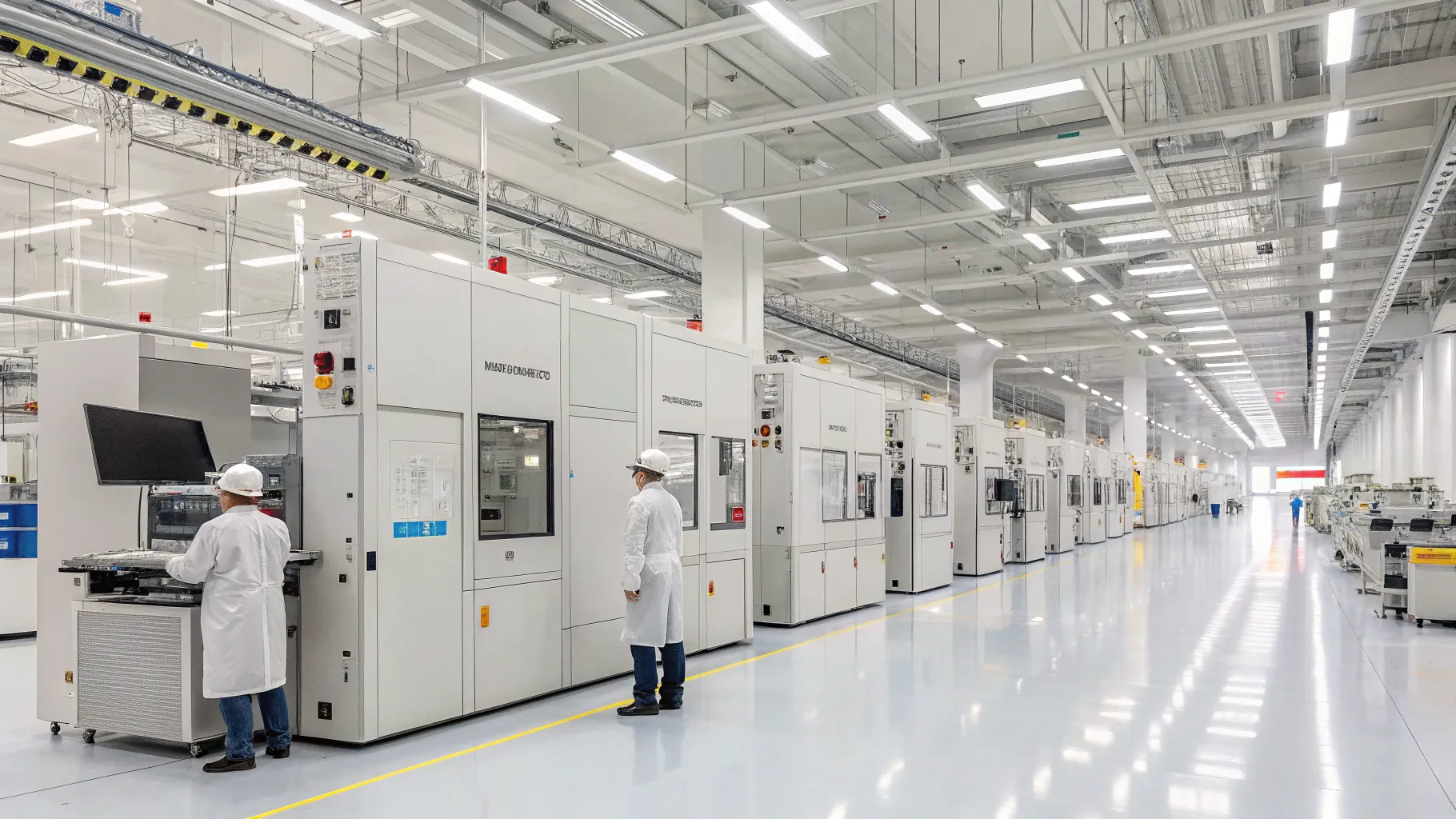Aeluma CEO Jonathan Klamkin has revealed details about his company’s collaboration with the Department of Energy to advance domestic semiconductor manufacturing. Speaking on the Fox Business program ‘Varney & Co.,’ Klamkin outlined how this partnership aims to strengthen U.S. chip production capabilities amid growing concerns about global supply chains.
The discussion highlighted Aeluma’s role in developing advanced semiconductor technologies as part of broader national efforts to reduce dependence on foreign chip manufacturing. This collaboration comes at a critical time when semiconductor supply has become a matter of both economic and national security importance.
Strategic Partnership with the Department of Energy
According to Klamkin, Aeluma is working directly with the Department of Energy on projects designed to enhance domestic semiconductor manufacturing capacity. The partnership focuses on developing next-generation chip technologies that could help the United States regain leadership in an industry largely dominated by Asian manufacturers.
Our work with the Department of Energy represents a significant step toward building more resilient supply chains for critical technologies,” Klamkin explained during the interview. The CEO emphasized that this collaboration aligns with federal initiatives to strengthen American technological independence.
The partnership involves research and development of specialized semiconductor components that have applications across multiple industries, including telecommunications, defense, and consumer electronics.
Addressing the Semiconductor Shortage
Klamkin addressed how Aeluma’s efforts fit into the broader context of addressing the global semiconductor shortage that has affected numerous industries. The chip shortage, which began during the COVID-19 pandemic, exposed vulnerabilities in the global supply chain and highlighted America’s dependence on foreign manufacturers.
The CEO noted that domestic production capabilities are essential for reducing these vulnerabilities. “When we increase U.S.-based manufacturing capacity, we create more stable supply chains that can withstand global disruptions,” he stated.
Key aspects of Aeluma’s approach include:
- Developing specialized semiconductor materials with enhanced performance characteristics
- Creating manufacturing processes that can be scaled within the United States
- Working with government agencies to align production with national security needs
Economic and Security Implications
The interview also covered the broader economic and security implications of domestic chip production. Klamkin pointed out that semiconductor manufacturing creates high-skilled jobs and stimulates economic growth in related industries.
From a security perspective, he emphasized that certain advanced chips are critical for defense applications, making domestic production capability a matter of national security. “Some of the technologies we’re developing have direct applications in systems that protect American interests,” Klamkin noted.
The CEO also discussed how government funding, including provisions in recent legislation, is helping companies like Aeluma expand their research and manufacturing capabilities. This support reflects growing bipartisan recognition of semiconductors as strategic assets.
Future Outlook for U.S. Chip Production
Looking ahead, Klamkin expressed optimism about the future of American semiconductor manufacturing. He indicated that partnerships between private companies like Aeluma and government agencies represent a model for rebuilding domestic production capacity.
“We’re seeing a fundamental shift in how the U.S. approaches semiconductor manufacturing,” he said. The combination of private innovation and public support creates opportunities to advance technologies that might otherwise be developed overseas.
Klamkin predicted that these efforts would yield significant results within the next three to five years, potentially reshaping global semiconductor supply chains and strengthening America’s position in this critical industry.
As the interview concluded, the CEO emphasized that continued investment and collaboration between industry and government will be essential for long-term success in rebuilding America’s semiconductor manufacturing base.







